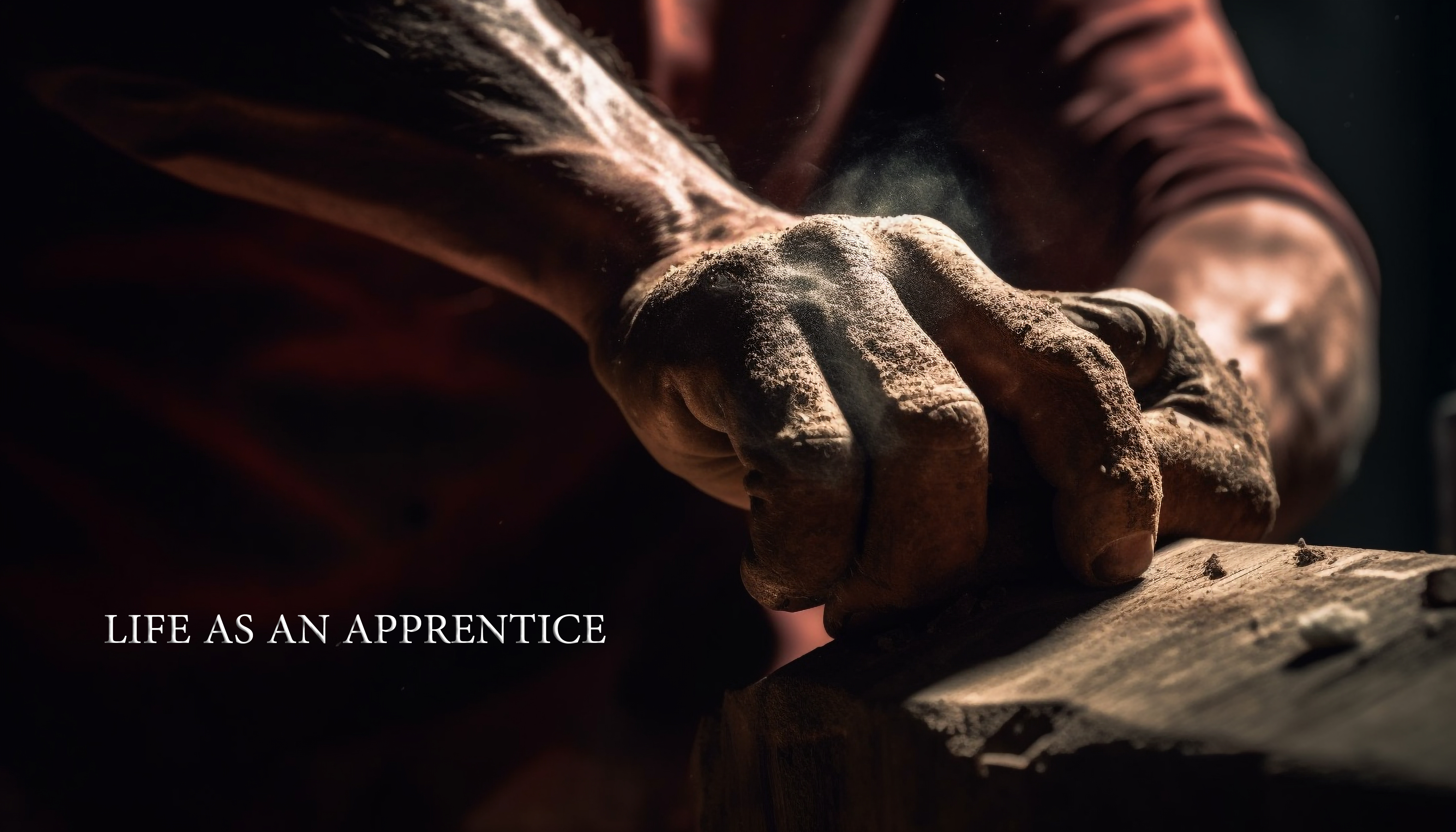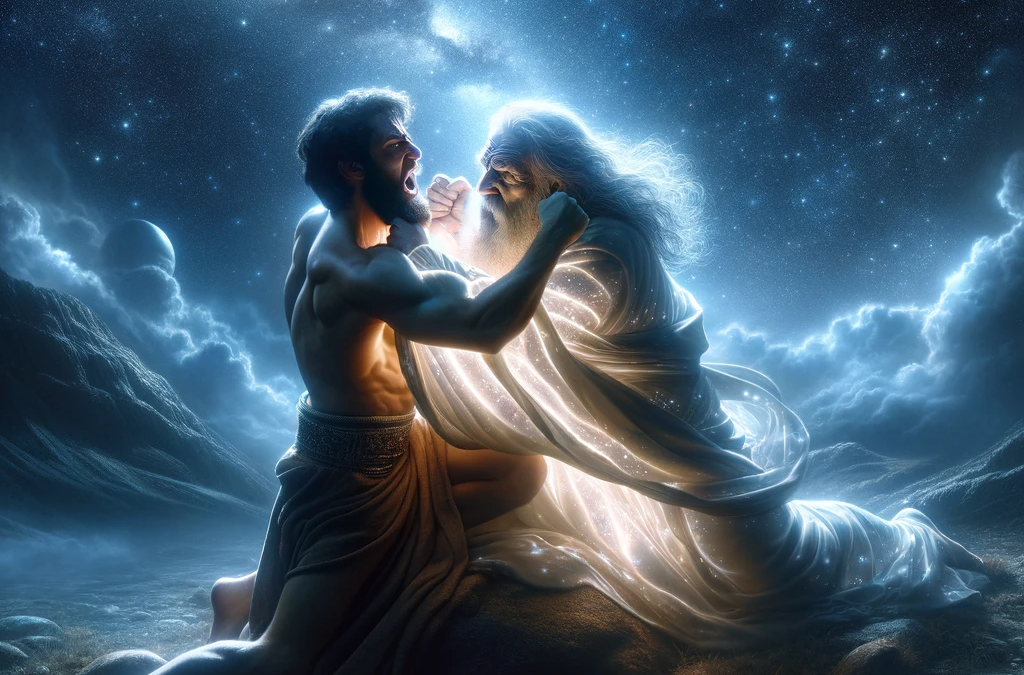I want t0 talk about forming realistic expectations of what the life of faith might look like. I think this is particularly necessary for our modern American religious culture, which is often quick to promise the benefits of being a follower of Jesus without fully revealing the cost of those benefits.
One of my favorite stories in the Bible is the story of Jacob wrestling with God from Genesis 32. Let me set the context for you.
Jacob came from what could accurately be described as a messy family. He was the younger of a set of twins with his brother Esau. Sibling rivalry was a significant part of their family story. The dynamics of this rivalry were no doubt at least partly fueled by Esau being the favorite of their father Isaac, while Jacob was the favorite of their mother Rebekah.
To say that Jacob led an interesting life would be an understatement. He bought his older brother’s birthright for a bowl of stew. He willingly participated in an elaborate deception at the suggestion of his mother where he impersonated his brother to gain the family blessing that his father had clearly intended to give to Esau. He not only blatantly lied to his father but also took advantage of Isaac’s disability since his father had lost his sight in old age.
Infuriated by the deception, Esau planned to kill Jacob after their father had passed. Again with the help of his mother and under the guise of finding a better wife than Esau had, Jacob undertook a journey of over 500 miles from present-day Israel to relatives in present-day Turkey. God met Jacob in a dream on the way and promised to be with him and bring him back to this land (Genesis 28).
Jacob the swindler then is swindled by his uncle and ends up marrying his cousins Leah unwillingly and Rachel willingly. He ends up having nine children by these two sisters and another four by their servants who were given to him. Again sibling rivalry plays a big part in Jacob’s story, only now it’s the rivalry between Leah and Rachel. After 20 years and lots of adventures, God tells Jacob to return to Israel.
While on the way, Jacob sends word to Esau that he is returning and gets word that Esau is coming to meet him with 400 men. On the night before he meets his brother, having separated himself from his family and in a significant crisis, he is described as wrestling with God all night. As the sun was coming up, he asked the angel (I am assuming it was an angel he wrestled with) to bless him before he releases him. In response, the angel put his hip out. Then the angel changed his name from Jacob to Israel.
Here is why I love this story so much and why it gives me such hope. Jacob is as unlikely a patriarch of faith whose legacy would change the world as they come. That God would choose him and his descendants to bless every nation on Earth is crazy on any number of levels. He is a Mama’s boy, a liar, a cheat, and a coward. His primary crisis of faith that causes him to wrestle with God is motivated by the fear of having to face the brother he swindled and potentially pay with his life for the lies he told his Father.
I most love the outcome. What does Jacob ultimately end up with after wrestling with God all night? A limp and the blessing of a new name. The name Israel is the name of the nation his descendants still carry. He was never the same after that night. God met him, and he was strengthened through the struggle. It is important to note that he wasn’t perfect after that night either. Like his grandparents and parents, he carries on the family tradition of playing favorites with his children, which leads to all sorts of significant problems and heartbreak. Still ahead of Jacob is all of the favoritism for Joseph that fosters enough animosity with his brothers that it causes them to want to kill him. Instead, they sell him into slavery, fake his death, and lie to their father. Still in front of Jacob is all of the depression and paralysis of fear over the possibility of losing Benjamin, his new favorite when he thinks Joseph is dead.
But what if Jacob couldn’t have become Israel without wrestling with God all night and having his hip put out so he walked with a limp? What if that experience was essential in some way for him to be formed into a useful tool in God’s hand?
As an aside, this story has done a good bit to help me form my understanding of the appropriate response to Jesus’s command to all of His apprentices that we go into all the world and make disciples. We are to offer an open invitation to whoever will come from whatever circumstances they may find themselves to come and wrestle with God from where they are.
I think the answer to the above question is that Jacob’s experience, while unique to him, is a normative type of experience that followers of Jesus can expect in some form or another. If that is true, then the expectation often peddled in some Christian circles that becoming a follower of Jesus will somehow shield or protect you from significantly uncomfortable circumstances is false. As it turns out, the Bible is full of stories like Jacob’s, where significant struggle is God’s primary tool to form us. I can certainly testify to it in my own story. But that is for another post.
What has your experience been?
Yours in the journey. . . Pastor Tim

